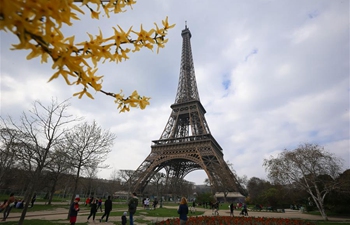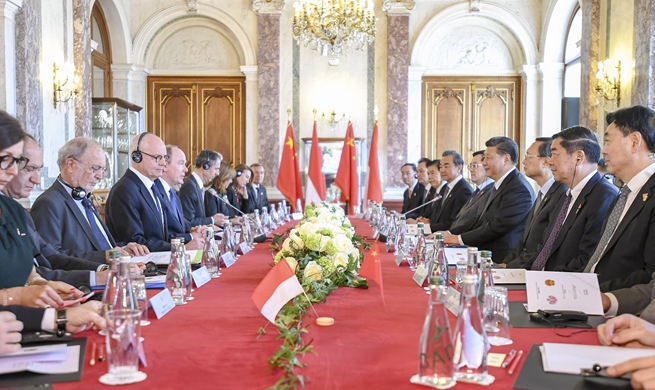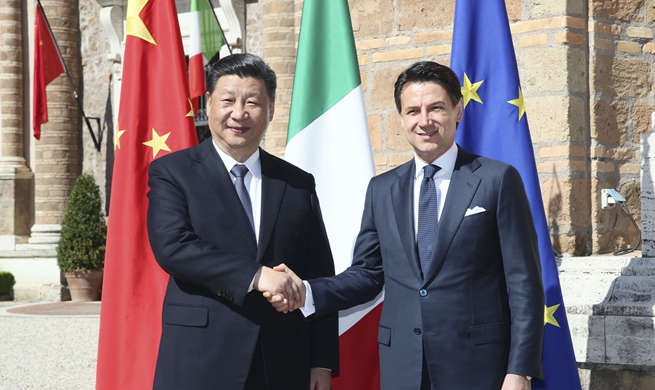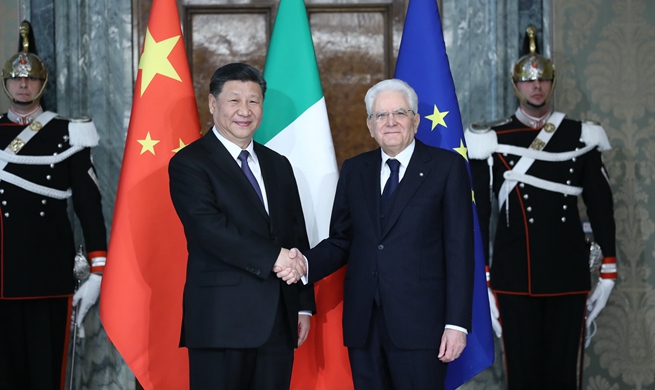BERLIN, March 25 (Xinhua) -- The chances of reaching a consensus in the German National Platform Future of Mobility (NPM) were not high, said German environmentalists ahead of the meeting on Monday.
While experts in the German government's working group for climate measures in the transport sector agreed that electric mobility should be massively expanded, it was unlikely that a consensus would be reached on the speed of expansion of electric mobility, the role of alternative fuels in Germany's transport and fuel pricing, said NPM members.
One of the major sticking points was over the future of cars in Germany. Serious discussions were needed "about alternative transport systems instead of cars with different engines," said Burkhard Stork, federal director of the General German Bicycle Club (AFDC).
Greenpeace transport expert Benjamin Stephan said that if the German transport commission could not provide a package of measures that would include an end date for diesel and petrol engines or an electric car quota, then "it has failed".
Oliver Krischer, deputy leader of the German Green parliamentary group, accused German Transport Minister Andreas Scheuer and the German Association of the Automotive Industry (VDA) of blocking structural change and endangering thousands of jobs in the German transport sector.
According to a draft of the NPM working group report seen by German newspaper Handelsblatt, shifting Germany's transport from internal combustion engines to electric mobility would require billions of euros in investments over the next few years and costs could add up to at least 120 billion euros (135.8 billion U.S. dollars) by 2030.
According to the NPM commission, achieving the German government's target of reducing emissions from transport by 42 percent by 2030 would require pricing CO2 emissions in the transport sector. As a result, the draft report suggested that fuel prices in Germany could rise by up to 85 cents per liter by 2023.
The German government tasked the NPM commission with developing a plan for significantly reducing greenhouse gas emissions in Germany's transport sector in the next decade. Members of the working group include German businesses, environmental and consumer associations, trade unions and car manufacturers.
"The sustainable transformation of the mobility sector is a complex challenge for society as a whole" said the NPM website. The German National Platform Future of Mobility (NPM) will present its interim report on Friday.












